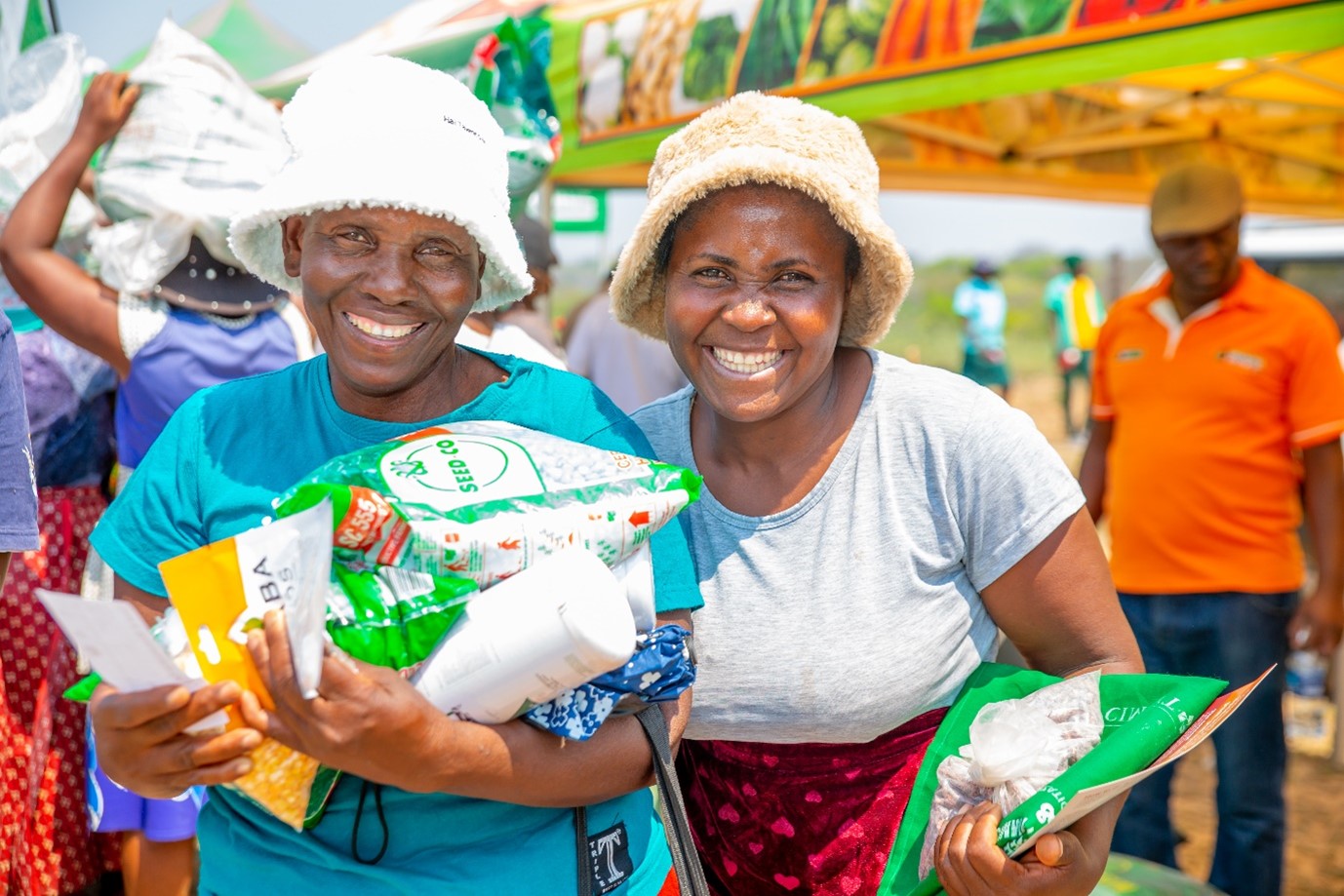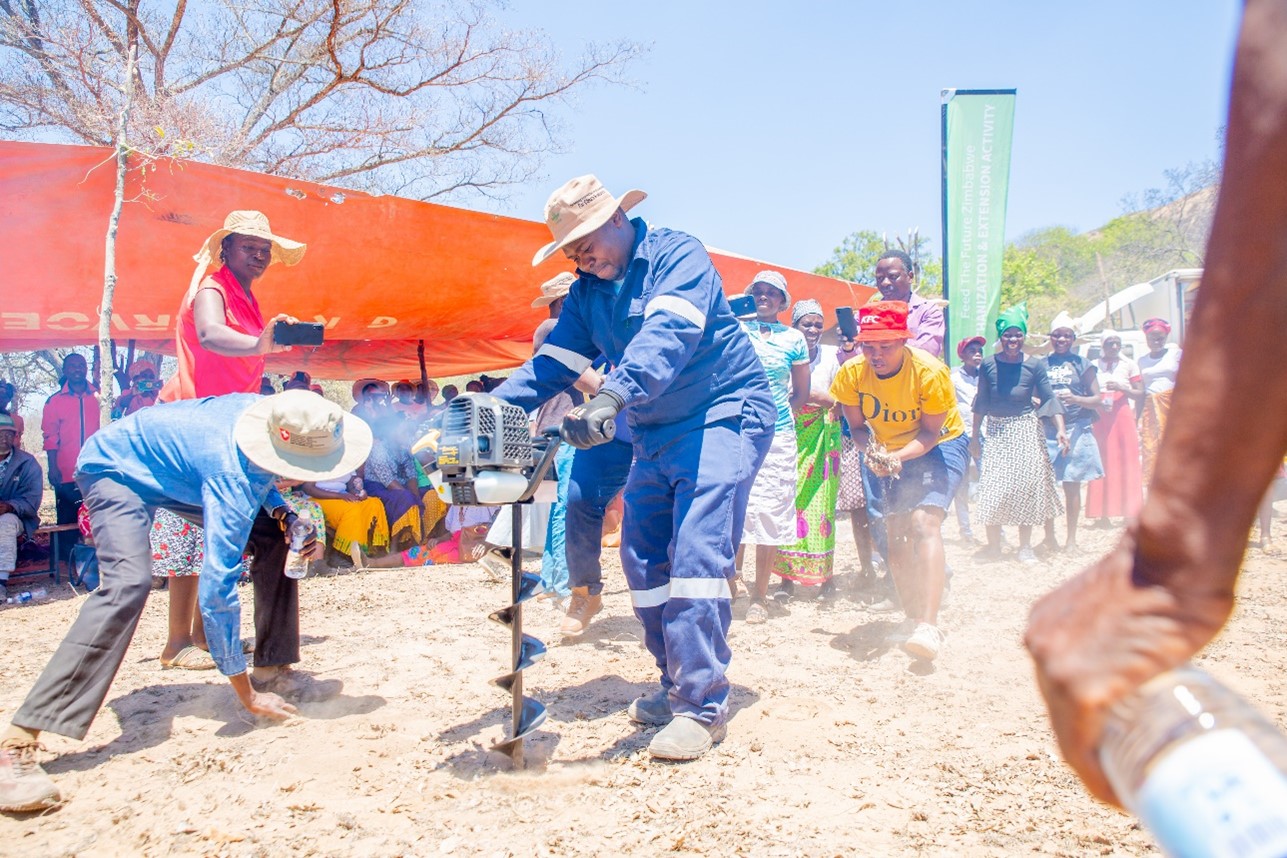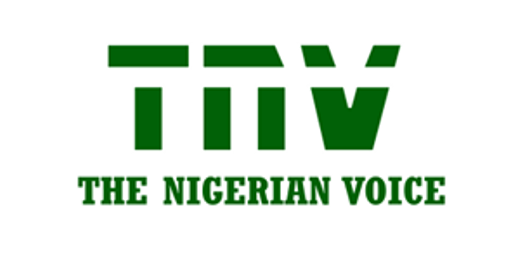
More than 1,300 smallholder farmers, across the Mwenezi and Masvingo districts of Zimbabwe, braved the hot morning sun to attend the fourth edition of the seed and mechanization fair organized by CIMMYT and partners in early October 2023. The event, themed “Harnessing improved seed and mechanization for climate resilience,” saw these farmers from all walks of life—first timers to past attendees—eager to participate, learn and explore the innovations on display.
Evolving over time, the seed and mechanization fair has continued to serve as a strategic platform to connect local farmers with private sector companies while enhancing the uptake of drought-tolerant maize varieties and scale-appropriate machinery. “Since 2020, CIMMYT-driven seed fairs have encouraged smallholder farmers in semi-arid areas, to grow the right seed at the right time to avoid any shortcomings due to unpredictable of weather patterns,” said Christian Thierfelder, principal cropping systems agronomist at CIMMYT.
Fast approaching farming season
El Niño continues to pose a threat to farmers especially in semi-arid areas such as in Mwenezi district situated in southern Zimbabwe and Masvingo district in south-eastern Zimbabwe which are drought prone areas characterized by high temperatures, rainfall deficit, among other challenges. Through the seed fairs, CIMMYT, a consortium member of the World Food Program projects, R4 Rural Resilience and the Zambuko Livelihoods Initiatives supported by the Swiss Agency for Development and Cooperation (SDC) and USAID, has been at the forefront, advocating for and inspiring local farmers to buy and use seed varieties suitable for their environment, while encouraging farming as a business. In addition, the regional project Ukama/Ustawi Diversification in East and Southern Africa joined efforts to support farmers in income diversification from pure cereal-based systems to more diversified cereal-legume and mechanized farming systems.
“I believe this is the right function at the right time as we prepare for the next farming season. From this event, we anticipate that farmers will say, ‘Yes we have received new technology, yes we have knowledge on new varieties, yes we have information about the weather forecast’. We now have confidence that farmers are well-equipped and ready for the season to achieve the Zimbabwe Vision 2030,” said Isaac Mutambara, district development coordinator from Mwenezi.
Building resilience with drought-tolerant varieties
Amid climate change, equipping farmers with climate-smart knowledge and the right seed varieties has been central to the seed fairs. Working hand in hand with the government, CIMMYT has been breeding drought tolerant, orange maize with high nutritional value. “We encourage the growing and consumption of crops with nutritional value for household food security. Furthermore, we have different varieties of orange maize which are drought-tolerant,” said Thokozile Ndhlela, maize line development breeder. In addition, CIMMYT as part of HarvestPlus, has been encouraging the growing and consumption of nutritious NUA45 beans which are high in iron and zinc.
Mechanizing agriculture

The joint participation of the USAID funded ‘Feed the Future Zimbabwe Mechanization and Extension activity’, helped to emphasize the importance of transforming smallholder agriculture through scale-appropriate equipment. At the event, machinery manufacturers such as Prochoice, Kurima and Mahindra showcased cutting-edge machinery, designed to ease farming operations. These companies showed live demonstrations of two-wheel tractors, basin diggers, multiple crop threshers amongst others, effectively emphasizing the benefits of scale-appropriate mechanization. The innovations on display demonstrated the unwavering dedication of the private sector towards supporting farmers and driving agricultural innovation. “It has been a truly exciting opportunity operating the peanut sheller, while appreciating the different machinery in live action. I will consider buying this machine as it reduces the added burden of shelling and processing,” said Lungiwe Nyathi, a local farmer from Mwenezi.
Partnerships for growth
Various seed companies, including AgriSeeds, SeedCo, Farm and City, Super Fert, National Tested Seeds, Intaba Trading, Sesame for Life and K2, marketed appropriate seed varieties that ensure bumper harvests. Sales of seed, fertilizer and other inputs were high, with the total value of sales reaching US6,450. Vouchers were distributed to farmers who made high cash purchases of seeds. “I bought 45kgs of seed which I believe is a great start, and I am happy that I do not have to pay extra money for transporting the seed to my home,” said Martha Chiwawo, a farmer from ward 16 in Masvingo.
The fairs would not be complete without CIMMYT partners. While Zambuko Livelihoods Initiative shared their expertise in the district, SNV has been encouraging sustainable savings and lending schemes among farmers to purchase machinery while facilitating market access and reducing post-harvest losses. The World Food Programme (WFP) encouraged farmers to become resilient and self-sufficient through valuable knowledge and skills to improve their lives. In addition, the Mwenezi Development Training Centre (MDTC) focused on encouraging small livestock which are adaptable to the area. Additional partners Cesvi and Sesame for Life, who both operate in ward 6 of Mwenezi district, participated in the seed fairs for the first time. Both partners advance the production of high value crops—paprika and sesame—which have a ready export market and favorable prices for smallholder farmers. Government extension departments showed strong support while researchers from the Makoholi Research Station in Masvingo used the opportunity to talk to farmers about their research initiatives.
As the day came to an end, farmers were brimming with excitement and ready to embark on the season ahead with purchased, improved seed and a wealth of knowledge on innovative conservation agriculture practices. The event proved to be an invaluable opportunity for uniting farmers, government, seed companies, and partners in a shared mission to promote sustainable farming practices and ensure food security.

 Innovations
Innovations